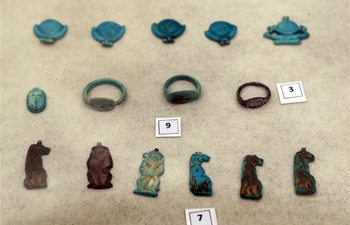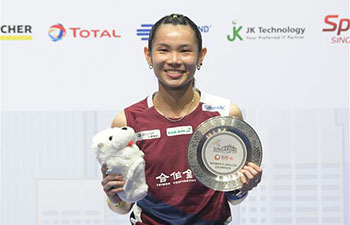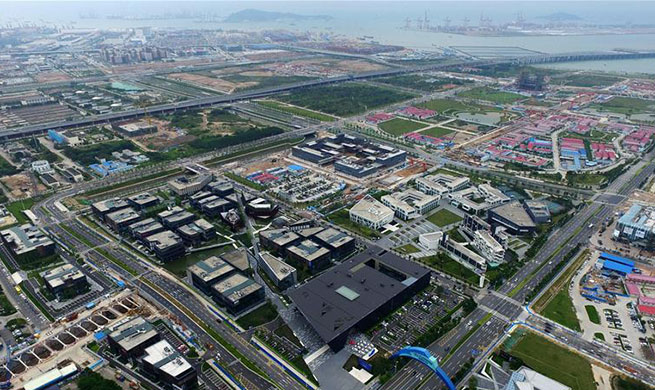HELSINKI, April 14 (Xinhua) -- The Social Democratic Party won the most in the Finnish parliamentary election on Sunday, securing about 40 seats, six more than last election in 2015.
With all votes counted across the country except the Lapland area, the populist Finns Party won some 39 seats, one more than in the last election, and the conservative National Coalition Party got 38, one more as well.
The Center Party was the biggest loser with 31 seats only, 18 seats fewer than in the 2015 election.
The Green Party came out fifth with 20 seats and the Left Alliance, 16 seats. The Finnish parliament has 200 seats in total.
Both the Green Party and the Left Alliance have increased their seats. The greens were predicted to have 20 seats, an increase by 5, and the Left Alliance, 16 seats, up by 4.
The Swedish People's Party has nine seats and the Christian Democrats, five.
The Green Party said it was one of the largest victories of the green parties in Europe, and only the greens in Austria and Luxemburg have done better.
The final numbers remained somewhat uncertain, since at least in one constituency a second manual ballot counting was ordered.
The election result left several options of a coalition government under the likely prime minister Antti Rinne. The party could choose either the conservatives or the Center Party as a companion, with the greens and the Swedish People's Party or the Left Alliance added.
In his election night speech, Rinne did not outright exclude cooperation with the populist Finns Party, but defined it as unlikely.
In the election, the Blue Reform party vanished from parliament. It was established by the people who left the Finns Party in 2017. None of the five ministers won any seats. The foreign minister Timo Soini, the previous chairman of the Finns Party, did not run. Other ministers failed, including the high profile defense minister Jussi Niinisto.
The Center Party lost its only seat in the Helsinki constituency as the environment minister Kimmo Tiilikainen was not elected. The Party is historically a successor to the old Agrarian League and has never had much presence in the capital.
Commenting on the social background of the election, Juha Rahkonen, research director of pollster company Taloustutkimus, said the election result was a counter attack by "soft values" following the hard economic policies pursued by the outgoing government.
Rahkonen also took up the apparent polarization between men and women in political attitudes, noting that some 80 percent of the supporters of the populist Finns are men, while two thirds of the Green supporters are women.
Anu Kantola, a professor of communication at Helsinki University, noted that only the Finns profiled themselves a strong critic of immigration. Kantola and Rahkonen both noted that as the polls recently started indicating, the Finns could reach even the largest party status and this contributed to a "band waggon phenomenon" about a likely winner.
The election also saw the disappearance from parliament Paavo Vayrynen, former chairman of the Center Party. He attempted to get elected through an election alliance.
Touko Aalto, the short time chairman of the greens, failed to renew his seat. He resigned from the chairmanship after health problems and was succeeded by Pekka Haavisto as an interim chairman.













